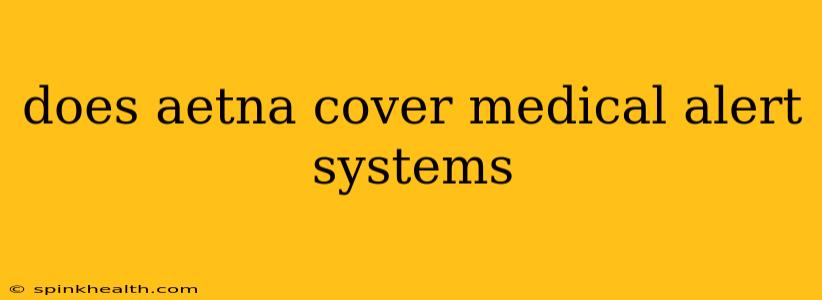Does Aetna Cover Medical Alert Systems? Navigating the World of Senior Healthcare and Technology
The quiet hum of a medical alert system, a small device offering a lifeline in times of need – it's a comfort for many seniors and their families. But the question often arises: Does Aetna cover medical alert systems? The answer, unfortunately, isn't a simple yes or no. It's a journey through the intricacies of insurance coverage, specific plan details, and the evolving landscape of healthcare technology.
Let's unravel this together, exploring the factors that influence Aetna's coverage and providing you with the tools to navigate this important decision.
What Factors Determine Aetna Coverage?
Aetna, like most insurance providers, doesn't offer blanket coverage for medical alert systems. The coverage hinges on several key factors:
-
Your specific Aetna plan: Aetna offers a wide range of plans, from HMOs to PPOs, each with its own set of benefits and exclusions. A basic plan might not cover medical alert systems, while a more comprehensive plan might offer some reimbursement under certain conditions. Your plan's benefit booklet is your bible in this case. It details what's covered, what isn't, and any stipulations.
-
Medical necessity: This is a crucial factor. Aetna, and other insurance providers, typically only cover medical devices deemed medically necessary. This usually requires a doctor's recommendation or prescription specifying the need for a medical alert system based on your specific health conditions. Simply wanting the extra security isn't enough for coverage. A diagnosed condition requiring fall detection or immediate medical attention would significantly increase the chances of approval.
-
Durable medical equipment (DME) benefits: Many Aetna plans cover certain types of DME. Medical alert systems might fall under this category, depending on the system's features and your physician's assessment. However, you'll typically need pre-authorization for any DME, meaning your doctor needs to get approval from Aetna before you can purchase the system. This involves documentation and justification.
How Can I Determine if My Aetna Plan Covers a Medical Alert System?
-
Check your plan documents: Your plan's summary of benefits and coverage (SBC) and the detailed benefit booklet will list covered medical equipment. Look for sections covering "durable medical equipment" or "home healthcare."
-
Contact Aetna directly: Calling Aetna's customer service is essential. Provide them with the details of the specific medical alert system you're considering, including the model and features. Have your doctor's information ready, as they might need to speak with your physician.
What if My Aetna Plan Doesn't Cover a Medical Alert System?
Don't despair! Several options remain:
-
Explore supplemental insurance: Consider a supplemental insurance policy, specifically designed to fill gaps in your primary insurance coverage.
-
Investigate financial assistance programs: Some organizations offer financial assistance programs to seniors needing medical alert systems.
-
Out-of-pocket purchase: You can purchase a system outright. Many companies offer monthly subscription plans with various features that can make the investment more manageable.
Are there specific features that increase the likelihood of Aetna coverage?
While Aetna doesn't explicitly list specific features, focusing on systems with demonstrable medical benefits increases the chance of approval. A system that can detect falls, automatically alert emergency services, and track vital signs is more likely to be considered medically necessary than a simpler, basic system. Discuss this with your doctor.
Conclusion: Proactive Planning is Key
Determining whether Aetna covers your medical alert system necessitates careful examination of your plan details, open communication with Aetna and your doctor, and exploring alternative financing options. Proactive planning and clear communication are paramount in obtaining the support you need for this crucial safety device. Remember, your health and well-being are paramount. Don't hesitate to ask questions and explore all possible avenues to secure the assistance you deserve.

